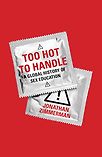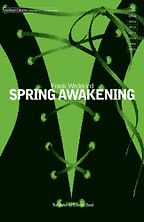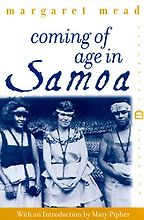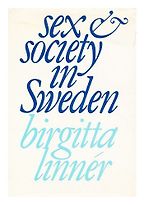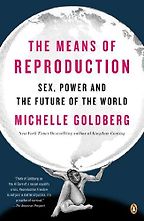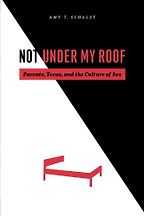Before we get to the books you’ve recommended, I wanted to ask about a comment you make in your own book, Too Hot to Handle: A Global History of Sex Education. In the introduction you write that ‘to Émile Durkheim, sex could never be reduced to a matter of health, science, or even knowledge’ and that your book is about the possibility he was right. Do you think sex is too mysterious to be taught in an empirical way?
I don’t think I’d go that far, but I would say that it’s impossible to teach it just in an empirical way and this was Durkheim’s point. He’s responding to progressive-era rationalism which says ‘sex is no different from any other subject, let’s just keep to the facts,’ and his insight was that this was a fool’s errand. He’s not against sex education, or teaching the facts. What he’s trying to underscore is that this is a subject that is inherently value-laden and inherently tied to our most profound communal commitments, so to pretend that we could find a value-free way of teaching it, or what you were calling an empirical way, is really a fool’s errand.
Could you outline the major problems teachers face when instructing students in sex education?
How long do we have?
The first and most difficult problem for the teacher is that the teacher’s constituencies don’t agree about what sex education should be. Even in places like Sweden, that Americans often idealise as this kind of sexual utopia. You find Swedish teachers saying, in the sixties, ‘some parents want us to say a lot, other parents want us to say nothing, what do we do?’ So, that’s the first problem.
“The real story in education since the Second World War is that school became ubiquitous in the world.”
The second problem is that schools are sexual spaces and teachers are sexual beings. So, anything the teacher says or does is in some way—at least indirectly—going to address her or his sexuality. The point I make at the beginning of the book is that the real story in education since the Second World War is that school became ubiquitous in the world. This might not have been the century of the child, like Ellen Key wanted it to be, but it certainly was the century of the school. So if you look at when I was born, at the beginning of the sixties, about half of the children of the world entered a school; now it’s upwards of ninety-three, ninety-four percent. I think in two hundred, three hundred years that will be the dominant fact of our lifetimes. The other really important event people will look back on and say was the signal of our times was, of course, the women’s revolution. These two trends are consistent. The major reason that school became such a ubiquitous institution was that in earlier times only one gender went to them. That’s not the only reason—but it’s a major one. Girls flood into schools and one of the things that that does is make the school a sexual space, and you’ve got a teacher there and the natural question on the part of adolescents if the teacher starts talking about sex is ‘is this what you do? With whom?’ That’s implicit in the discussion.
This all seems to me connected to how far we think we can separate our minds from our bodies. It’s very Cartesian.
Absolutely. And let’s remember that just because all these kids are going to school—tens of thousands of kids who didn’t formally go to school—it doesn’t mean they’re in classes of seven with a trained teacher. In many parts of the world they’re in classes of seventy with a teacher who has barely more formal education than they do. We’ve got to remember that context. Even when schools become ubiquitous they’re radically underserved in some parts of the world.
I taught in Nepal in the early eighties and I had classes of seventy and eighty sometimes. How do we expect somebody who has barely more formal education than their charges, who has eighty or ninety such charges of different ages, to teach them sex education? It’s sisyphean!
Let’s talk about the first book on your list of sex education books, Spring Awakening. What’s the play about?
It’s about adolescent sexuality and it’s extremely explicit insofar as it addresses abortion, homosexuality, unwanted pregnancy, masturbation, and suicide. All these subjects come up in the play because the kids are awakening to their sexuality but they’re not given an education about it. One of the paradigmatic, or iconic, quotes from the book is when a kid in the play opens the encyclopaedia in his school to try to discover something about sex but there’s nothing in it. The kid says: what’s the use of a book that doesn’t tell you about the most important thing? So the play is really a plea for a kind of education to guide adolescents that need it.
The most important fact about Spring Awakening is that Wedekind wrote it in 1891 and it wasn’t produced in Berlin until 1906. That tells you volumes. The topics that he addressed were so controversial they couldn’t be put on stage. It took a decade and a half to even produce this play.
Contemporary responses to the play viewed it as pornographic. Why do you think conservative societies censor depictions of abuse with claims that they are titillating?
I think that comes down to disagreements about childhood sexuality itself. Keep in mind that right around the time Wedekind is writing his play there’s a psychiatrist in Vienna starting his own research and writing about childhood sexuality. The Freudian revolution at its heart starts with the assertion that all human beings, from birth—indeed, in utero—are sexual beings. But there’s no consensus on that claim, in Europe or anywhere.
If you don’t believe that kids are sexual and think that they shouldn’t be, it’s not a big jump to think that sexual information presented too early could both corrupt their minds and also make other evil people regard them as prematurely sexual.
This process by which conservative groups see any discussion of sexuality as pornographic clearly leads them to suppress discussions of sexuality, which in turn leads to abuses and confusions surrounding it.
I think that’s lessened in recent years. It’s lessened for a very stark historical reason, which is the AIDS epidemic. The AIDS epidemic changed everything, but especially the dialogue about Sex Education. Before AIDS, there were people who were against Sex Education and people who were for it. After AIDS, everyone became for it. They just became for different kinds of it. People who formerly had said ‘the school has no business touching this subject’ couldn’t say that any more. AIDS was just too omnipresent, too awful, too scary. So the likes of Philip Schlaffer and Jerry Falwell—the heroines and heroes of the New Right—became advocates of Sex Education. But, of course, they called it ‘abstinence education’. But ‘abstinence education’ includes discussions of sex, without a doubt, and that’s revolutionary in its own way.
Get the weekly Five Books newsletter
I think it’s fair to say that conservatives have backed off the idea that any sexual discussion is inherently corrupting. I’ll give you another example that I love. The summer before last there was a debate about abortion on the floor of congress and a Republican pro-lifer, himself a physician, got up to make a pro-life testament. He said ‘listen, I’m an obstretician and I can tell you that in utero I can see erections.’ I wrote a piece about this saying this guy just gave up the game. Because for a century conservatives had claimed that kids are not sexual beings, and he was actually acknowledging that they are. Of course, this was in the context of an anti-abortion screed. But it’s illustrative of a really important and under-appreciated change in the way Conservatives have regarded the subject: from something that’s taboo inherently and must be taboo, to something that must be addressed, albeit in a conservative way.
We should move on to the next book on your selection of sex education books, Margaret Mead and her Coming of Age in Samoa.
Mead is a hugely important figure in American letters. She’s one of these people who has always been an inspiration to me, because she had such wide interests and wrote in so many different places, I’ve never done a book project where she didn’t come up. She wrote so voluminously and so beautifully. She had the kind of influence most academicians can never imagine.
Why did she go to Samoa?
Mead was a student of Franz Boas, who’s really the founder of modern anthropology. Boas’s insight was that our differences are not biological, they’re cultural. Boas and Mead worked during the era of Jim Crow and Eugenics, when it was felt that people were inherently different biologically and that they were arrayed on a ladder with some of them being more developed and more superior than others. The great insight of cultural anthropology is that of course we’re different but we’re not different in our ‘blood’, we’re different in our mores, our habits, and our beliefs: in our culture.
Mead had grown up in the United States, in very well-to-do circumstances and she became interested in child development. She noticed that fifteen- and sixteen-year-old girls got really bitchy around their mums. She read American psychologists and sociologists saying ‘this is obviously natural: this is what happens to teenagers.’ You can read this today—that teenagers have hormonal surges and they get all surly and they don’t want to be around adults because they’re trying to differentiate themselves from them, find their own identity, etc. etc. Mead is rightly dubious about this and the reason she goes to Samoa is to test whether there is something inherent about adolescents that makes them surly and makes them especially anxious and worried about the subject we’re talking about, namely, sex. In Samoa she finds out that the answer is no, that none of these questions are particularly charged or anxiety-ridden.
I should emphasise that since Mead’s time a number of people have gone back and looked at her research and at Samoa itself and have decided that she was wrong about many of the particulars, that she idealised and mythologised some of these people, sometimes caricatured them. There were other parts of her research that were extremely weak, but for me that doesn’t change the radical nature of her insight. I understand that a lot of her scholarship probably wouldn’t pass muster today, but that goes for many people who wrote during her time. I think the larger philosophical manoeuvre was the idea she had of looking outside of ourselves rather than naturalising the way we look at the world and assuming it is the universal way, the normal way.
The other reason the book is important is that it begins a trend in the United States among people who are uncomfortable with our sexual order and sexual mores of trying to look outside and finding a place where they do it right. That move often does involve a certain degree of caricature and distortion. I trace an example of that in my book in the way Americans regard Sweden. By the time of the so-called sexual revolution, Sweden has essentially become a rorschach test for Americans. It’s not a place any more, it’s a kind of free-floating signifier that you can read anything onto. In the Left of course it’s this sexual utopia where, instead of worrying about this subject, they address it rationally and people are free, but they’re also safe etc. And of course for Republicans it’s a place of alcoholism and suicide. Both of these are distortions. But I think the Left’s distortion in some way traces back to this search for a sexual alternative that can teach Americans about the irrationality of their own ways.
Do you think even if there is an element of the imaginary that that’s helpful because then we have some polarity in the way we view our own culture?
Absolutely. It moves the ball forward in a way. It advances the discussion. I’m old fashioned enough to think anything that does that is salutary.
Shall we talk about Birgitta Linner’s Sex and Society in Sweden?
Yeah, speaking of romanticisation. This is one of these books that I’ve a strong feeling no one actually read. The preface by an American sex educator whose name was Lester Kirkendall underscores the real take-away message: despite all the curricular innovations in Sweden and its pioneering exploration of sex in schools (it’s the first country to require sex education and there’s a very elaborate curriculum), when you go into the schools and you talk to the students and the teachers you find out that a lot of them are either ignoring it or giving it very short shrift.
To this day, when you interview teachers and students in Sweden they say ‘well I know it’s in the curriculum, but we didn’t teach it, or we didn’t learn it, or we learned very little, or it was a joke, or we already knew it.’ And so it’s a remarkable book in its honesty but I don’t think that honesty is actually captured in many of the reactions to the book, precisely because so many people were so invested in seeing Sweden in their way.
How do you think we should react to this—do you think it’s helpful to keep viewing Sweden in this way as it’s a contrast?
At the end of the day, most historians are pretty rugged empiricists. So am I. I understand the impulse to distort Sweden, I understand the politics and the history of it. But, frankly, I think it’s profoundly unhelpful to do so, especially in our current moment. Because of this thing we call globalisation. Sweden itself has become a radically immigrant society. One of the caricatures I remember learning from my mother, who is—this is weird—herself a sex educator, is that Sweden had it easy because ‘they all descend from the same thousand Vikings’ or whatever. That wasn’t true, but it was very monochrome and almost everyone was Lutheran. Today there are about ten million people in Sweden, and we think that one million of them were born in another country. If we hold on to this myth of Sweden, we miss the absolutely critical recent developments.
Is it the case that sex education has led to smaller numbers of teenagers having babies, etc.?
Now we get into the question of effects, and I think the most spare answer is we really don’t know. There was a really interesting study done in 2009 of the three countries in Europe with the lowest rate of teenage pregnancy and—at the time, this may have changed—they were Sweden, Switzerland and Italy. And the authors of this study pointed out that these three countries had radically different approaches to sex education. The sex education in Italy was horrible, by any standards, it was about two hours a year, and they surveyed kids and half of them think you can get AIDS from a toilet seat. But the teenage pregnancy rate was incredibly low which obviously shows sex education is not the relevant variable here.
It’s an interesting question though because it segues into the most important difference between Continental European and American sex education, which is the difference in purpose. The very question is essentially an American one because historically, and I would argue right into the present, the major goal of sex education has been to prevent negative consequences. Namely, teen pregnancy and STDs. But that hasn’t been the main purpose of education in places like Sweden.
I had an ‘ah-ha’ moment when I was in the archives of the major sex education organisation in Sweden. A sex educator from Ireland—which had very negligible and, so far as it occurred, very conservative sex education—wrote a letter to this sex education organisation, basically asking ‘why are you so awesome? why are your teen pregnancy rates so low and your teen STD and abortion rates so low?’ Well the guy in charge writes back a very nice letter, where he says two things. First of all: those rates are lower here, but we don’t know if that’s because of sex education. Second: that’s not the point, we’ve actually never studied the effects, of course no-one wants unwanted teen pregnancies and STDs, but our goal here is not to limit them but to help each individual develop and determine their sexual life. That is just a different orientation.
I’d never thought that sex education could be about making things good for adolescents, instead of limiting things that could be bad for them!
But I think this is the disappointing part for many Western liberals. If you compare these two views—sex education for warding off evil and promoting good—the first view plays a lot better in the Developing World than the second view. The second view is totally alien. So when international organisations, like the WHO and the International Population Conference in Cairo in 1994, start to move towards this view—that sex education should help each individual determine their own sexuality, including sexual pleasure—a lot of countries in the world find that anathema. Specifically, the idea that an adolescent individual should choose their own sexual behaviour. I think it’s fair to say that, again, after the HIV epidemic almost every nation state develops a kind of sex education, but in most parts of the world it’s a lot closer to the American version. That is, be careful: danger ahead.
“When people say ‘adolescents shouldn’t engage in sex’, they mean ‘adolescent girls shouldn’t engage in sex.”
It’s poignant because Swedes are justly proud of their pioneering efforts in sex education and they sent emissaries around the world. The most fascinating part of my book for me was following Swedes to Latin America and to Tunisia and all kinds of other places promoting their point of view. And I think it’s fair to say it mostly fell on deaf ears. It’s just not—right or wrong—a match for the cultural presumptions of those places.
This is so like what Victorian Missionaries were doing and now the way many people in the Developing World feel about homosexuality is directly because of Victorian, European values bought to them with colonialism. It’s so ironic that the Swedes then went over and said ‘no, no: that was wrong, this is right’. It’s like, when do you stop telling people how to think?
Exactly, I think that’s a great parallel.
So let’s move on to Michelle Goldberg’s The Means of Reproduction.
I think the real insight of the book, at least for me, was connecting the questions I was dealing with in sex education to the larger questions of women’s rights around the world. And they’re connected. Because when people say ‘we don’t think adolescents should engage in sex’, often what they’re saying is ‘we don’t think adolescent girls should engage in sex’. Obviously there are enormous double standards which we could find in almost any culture. What Goldberg does in this book is explain how this is, through a number of different controversial questions: fertility, birth control, the question of so-called gendercide (people using sonograms and aborting if they are having a girl), and also female genital mutilation. These are all issues that we’ve known about for a very long time, but the real contribution of that book was to show how the politics of these issues have globalised. That is, people on each side of the question can now have much more in common with somebody on the other side of the planet than on the other side of the street. Because of the rapid movement of ideas and peoples across the globe, if you want to stop Sex Education or if you want to promote it, you can now have an ally in another country, with whom you can share information and strategies. I think it’s those allegiances and those dynamics that the book really captured in a pioneering way.
This begs another question related to globalisation: whether you should try to impose a global hegemony in this field or follow the route that says your local culture will give you a much more solid and useful answer to these questions.
I think it’s fair to say we want it both ways. We want to respect and celebrate, even venerate, cultural differences and group cultures, but at the same time we want our values on questions like sex to be primary or even—to use your term—hegemonic. And I think it’s very hard to have it both ways.
Your final book is Amy Schalet’s Not Under My Roof: Parents, Teens and the Culture of Sex.
It’s a terrific book because it points to a really important difference in the values of, I would say, most American parents and most native-born Dutch parents (I want to emphasise that most of the people she interviewed grew up in Holland and so are immersed in its culture). It points to a fundamental difference in the way these two groups approach the question of teenage sexuality.
To most Americans it is a danger zone. Adolescents are very loth to communicate with their parents about it precisely because it is so charged and the communications themselves are deeply charged, and very negative. I thought of Schalet’s book when I was on an aeroplane the other day and was doing something I don’t usually like to do which was read my own book—I was going to give a talk about it and I’d forgotten what it said. This guy sitting next to me saw the book had condoms on the cover and he saw what the subject was and we started talking. The guy’s got a teenage daughter and the story he tells me is really confirmatory of Schalet’s thesis. He says his sixteen year old comes home one day and says ‘I’m dating this guy and I really like him and I think I’m going to sleep with him’ and he doesn’t say anything, he just says ‘let’s get in my truck.’ They drive to the poor part of town where the people live in trailers. He doesn’t say anything, he just drives through the trailer park and at the end the kid says ‘OK Dad, I get it, let’s go home.’ So what’s been communicated here? It’s all about the danger of the act and that if you engage in the act these are the negative consequences that might ensue. I think that’s precisely the value that’s communicated in so many American homes, which is precisely why there’s so little communication about the question.
What Schalet finds in Holland is that this is not the case. The book is called Not Under My Roof because the larger point is that, in Holland, people want it under their roof. That promotes much more communication and I think, ironically in a way, much tighter families and much stronger—to use a loaded term—family values precisely because the issue is less charged and more openly discussed. It doesn’t break families apart, it makes them closer.
The thing about the American model is: after that car ride my friend on the plane described, if the girl decides she’s going to have sex, she’s not telling Dad. In fact, she’s never going to talk to him about it again! He’s made his own position clear, so what else is there to talk about? I think Schalet’s larger point is that he’s also not going to meet the guy. Why would he? The teenagers are going to have to be completely surreptitious about who they are and what they do.
It’s very interesting that you and these other books counteract any simplifying ideological ideas with personal stories. You just can’t disagree with a story in which someone recounts their own experience with Sex Education.
It’s harder to discredit them when you actually listen. It’s harder to render them as products of impersonal forces: immigration, industrialisation, urbanisation. Those forces are real but I think the larger point is that we’re not rocks or fish, we’re people. We all react to them and negotiate them in different ways.
How does the way this question is addressed at home influence the adolescent’s relationship with their family later in life?
The effects are enormous. I should tell you—to use a very personal story—they were for me. My Mum was a family planning educator and when I was about sixteen years old she showed up with big bags of condoms that she bought home from the office. This is in about 1976 or so, a long time ago. She says ‘I don’t know what you and your friends are doing, but if it involves that it’s got to involve this.’ I did a lot of dumb stuff as a teenager growing up in the seventies, I’m not alone in that. But the one dumb thing I never did is I didn’t have unprotected sex. So there’s got to be a reason for that and I’ve got enormous respect for the way my Mum bought me up on this question. I think it absolutely influenced the way that I think and behave and the way that I’ve raised my own daughters. But, again, it’s not about me: that’s my own story and it made sense for me. But I think all of us have to resist the impulse to think that what worked for us will be and should be normative for somebody in another part of the country or in another part of the world.
Five Books aims to keep its book recommendations and interviews up to date. If you are the interviewee and would like to update your choice of books (or even just what you say about them) please email us at [email protected]
Five Books interviews are expensive to produce. If you've enjoyed this interview, please support us by donating a small amount.

